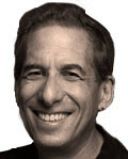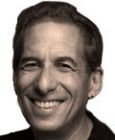Education
How to Observe
People want to change their lives: The first step is learning to observe.
Posted July 2, 2021 Reviewed by Davia Sills
What exactly is observation, when does it start, and how does it develop?
Here’s a big tip: The best observers are less-opinionated. If you operate with opinions, you observe to confirm or refute them. If you have an open mind, like a great scientist or writer, you’re better able to see things as they are, not how you want them to be. (That’s just my opinion!)
Observing begins early
Watch a mother and a week-old baby, and you’ll see the beginning of shared observations. The infant looks you in the eye—it is just about all they can do, other than moving their lips to be fed—and her act of observation with her mother is a perfect illustration of how silent observation is essential for growth. This may sound simple and obvious, but it’s not, because what happens to that act of observation as a child grows? And the reciprocal gaze of her mother, that’s gone, too. How can we restore that observation, not literally of course, but poetically and emotionally?
In fact, writers are the ones who acknowledge and make use of the importance of observation in their poetry and novels. The magnitude of their observation is what makes literature so essential to our sense of well-being.
George Orwell was one of the greatest observers. He described that process: “I do not want to abandon the world-view that I acquired in childhood. So long as I remain alive and well, I shall continue... to love the surface of the Earth, and to take pleasure in solid objects and scraps of useless information.”
As a person who earns a living as a psychologist and a writer, I look to both fields for inspiration; having access to the thoughts and questions of writers has enhanced my clinical work. The best literature has more questions than answers. Those questions expand what I try to observe in people who come to me for clinical support. In contrast to psychology, which is chock-a-block with answers, the best poetry and novels leave us feeling more amazed than before we read them. That amazement makes me a better observer and helps me to make the patients who see me better observers, too.
Key takeaways
I’m not suggesting we can or should revert to infantile ties, but I try to encourage myself and others to observe silently. The capacity for silent observation, lost along the way due to hurt and pressures and losses, remains in us. I use what I can of silent observation, both when trying to develop insight into my own life as well as the lives of others.
Observation is the first step toward change. Change is impossible without observation.
References
Haas, Scott. (2020). "Why Be Happy? The Japanese Way of Acceptance. New York: Hachette.
Orwell, George. (1946; reprinted 2005) "Why I Write." New York: Penguin.


